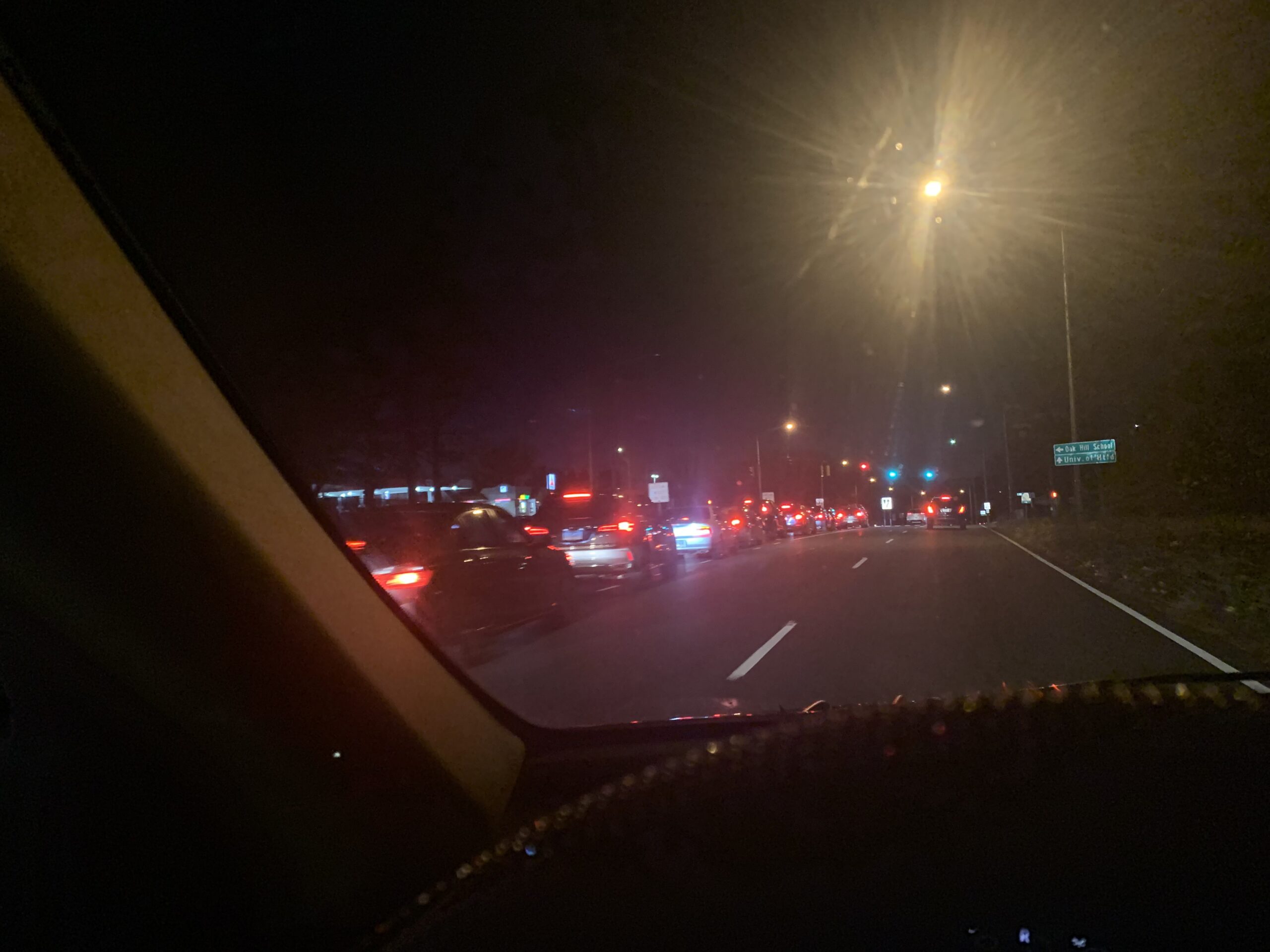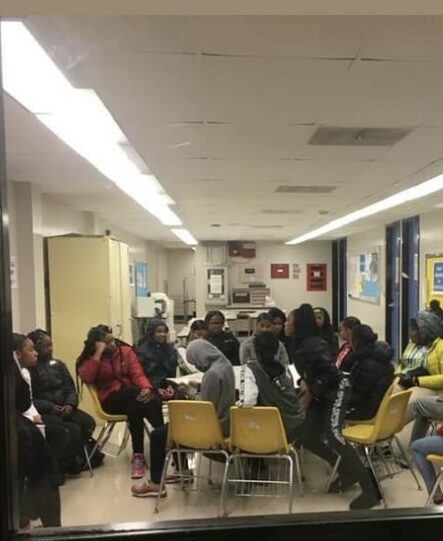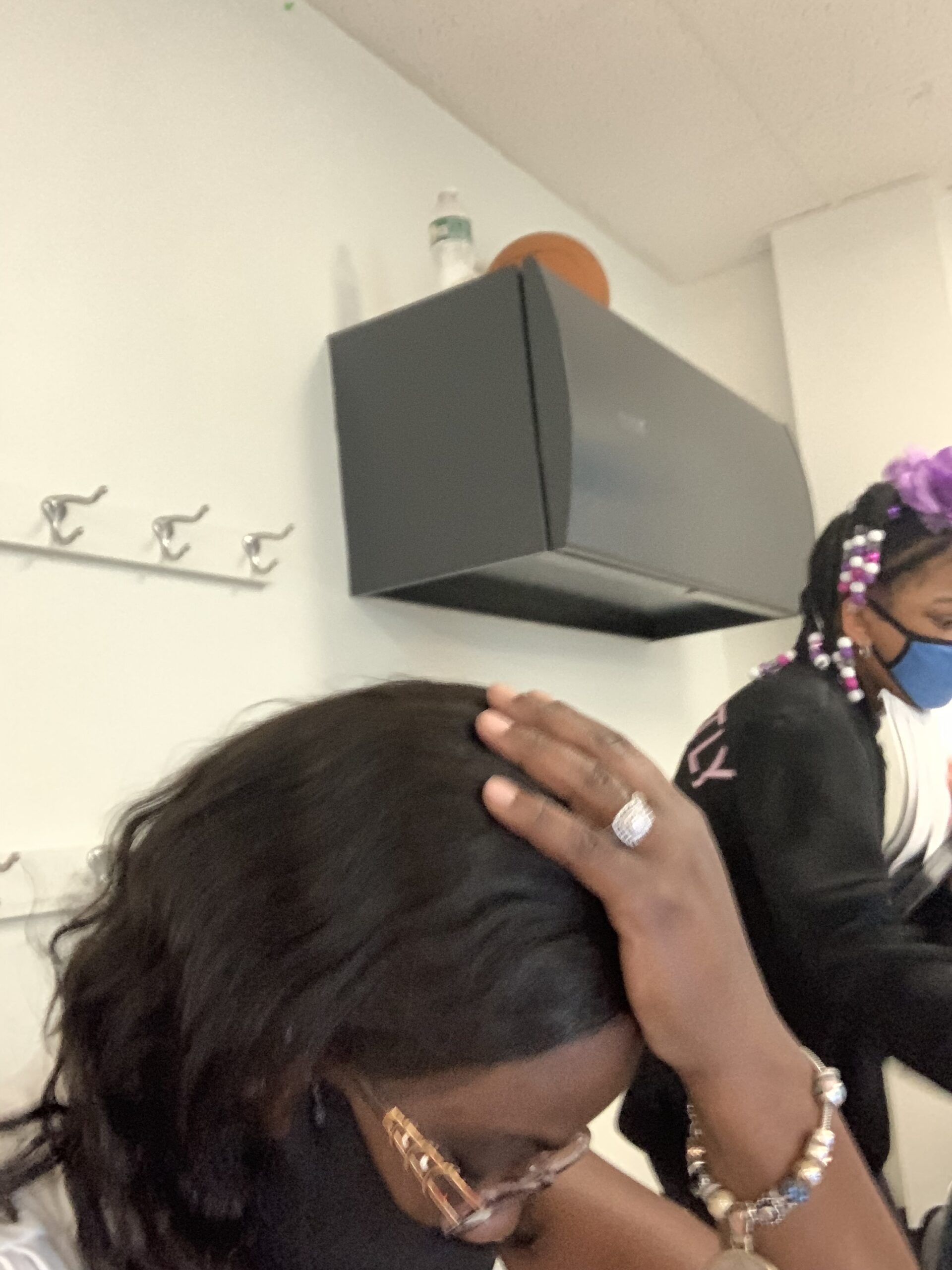Terry is an Upper Albany resident. She leads a drummer’s band at a local school and is very involved with the youth in the neighborhood. Terry took photographs with her cell phone while she went through her daily routines. Through her gaze, the reader can grasp quotidian aspects of her life at school, in her car, or in the Upper Albany surroundings. Terry’s reflections around the images and Energy Burden were collected in an individual interview via video call; thus, her narratives are not in dialogue with the work of the other three photographers. Her insight on the effects of Energy Burden in her community is sophisticated and relates deeply with her work with youth.
The first image she shared dealt with an aspect that the literature on Energy Burden mentions but did not tackle in this report, transportation. She talked about how the lack of well-stocked food stores in Upper Albany obliges residents of this neighborhood to drive several miles to get to one.

“We don’t have no real grocery stores that are selling like real healthy products. Food in the stores here is not healthy. So, you have to drive, at least for 15 minutes, which creates more pollution. And gas today is more expensive. All of a sudden, the [gas] prices just jump. It used to cost me $75 to fill my tank up, now it’s over $100 to fill my tank up.” Terry
The second image Terry shared showed an overcrowded classroom. When asked how the image spoke to the matter of Energy Burden, she said that these kids were “staked on top of each other.” And how that sparks violence. She said schools were very violent because there was not enough space to breathe. Later she reflected on how poverty creates immobility, obliging people to stay where they were born.

“A lot of people from Hartford just stay in Hartford, they don’t move around. A lot of people can’t afford to go anywhere, because they are spending all the money on bills, like the light bill and the gas bill. And gas itself, you know, just to survive. Everybody is on survival mode.” Terry
The last image Terry shared is a self-portrait that she has labeled “burning and burn out.” With it she depicts how stressed she is with the violence she experiences every day in the neighborhood and the costs of her bills which account to over $300 each month. The burden is too much, she said.

Terry closed the session reflecting on how the system is not supportive of people before they fall into critical stages. Which speaks to how the system in a perverse mode only provides support when people have fallen out of the safety net.
“They won’t help you unless your bill is behind you know, like Why do my bill has to be behind in order for them to help me like catch up. They need to be proactive instead of reactive. The system is all jacked up to, because the system is not proactive it only you know it is only geared to help the most vulnerable people, so you need to be desperate to be able to get some help” Terry